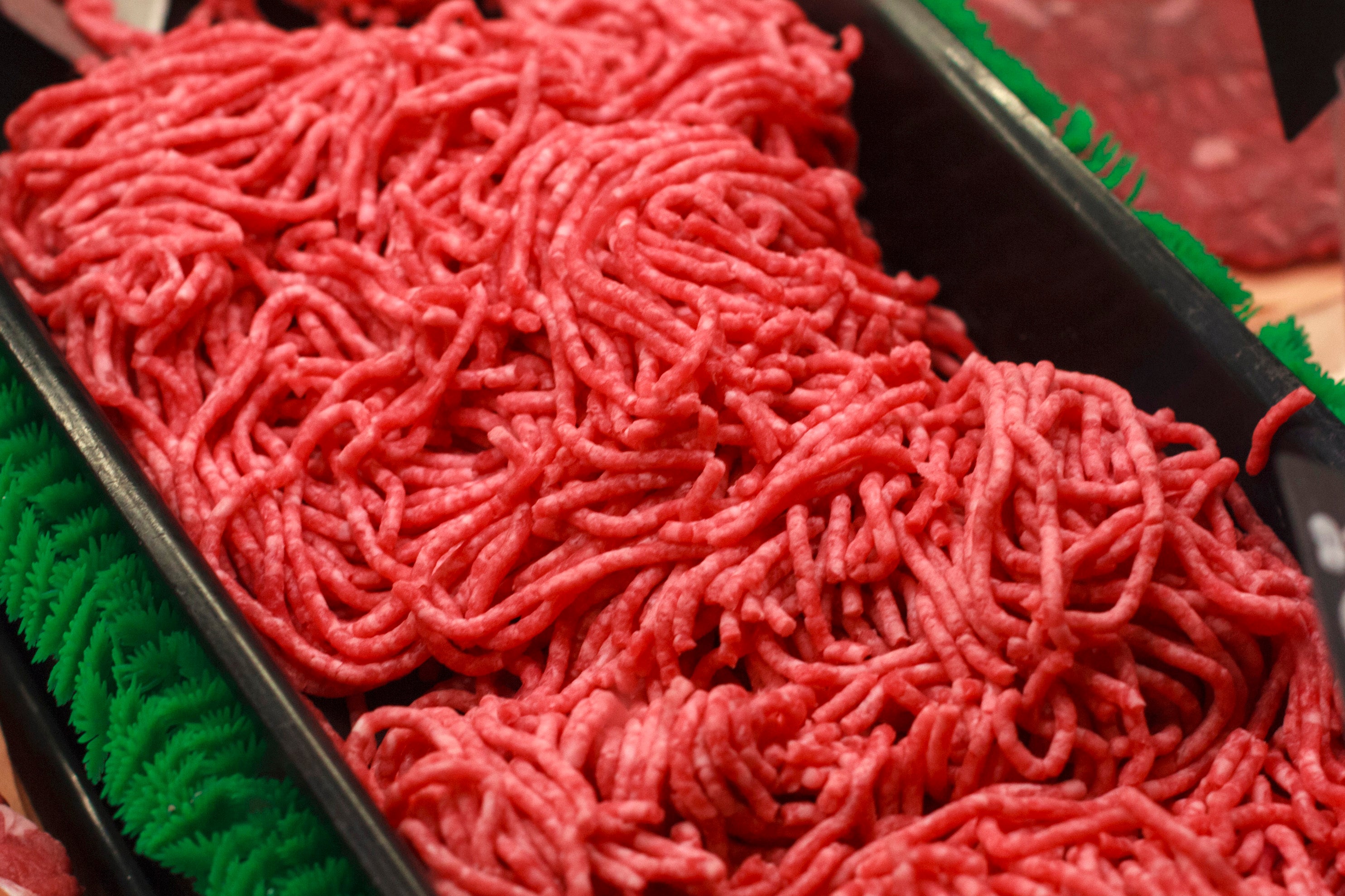More than 160,000 pounds of ground beef recalled due to E coli risk
Federal regulators are uring restaurants not to serve the potentially contaminated beef if they have any in their freezers
Your support helps us to tell the story
From reproductive rights to climate change to Big Tech, The Independent is on the ground when the story is developing. Whether it's investigating the financials of Elon Musk's pro-Trump PAC or producing our latest documentary, 'The A Word', which shines a light on the American women fighting for reproductive rights, we know how important it is to parse out the facts from the messaging.
At such a critical moment in US history, we need reporters on the ground. Your donation allows us to keep sending journalists to speak to both sides of the story.
The Independent is trusted by Americans across the entire political spectrum. And unlike many other quality news outlets, we choose not to lock Americans out of our reporting and analysis with paywalls. We believe quality journalism should be available to everyone, paid for by those who can afford it.
Your support makes all the difference.Approximately 167,000 pounds of both fresh and frozen ground beef products have been recalled by the US Department of Agriculture’s Food Safety and Inspection Service over potential E. coli contamination.
The potential contamination was first spotted by the Minnesota Departments of Agriculture and Health after it determined there was a link between a recent spate of food-borne illnesses and meat from Wolverine Packing Company, a meat distribution company based in Detroit, according to the FSIS.
The federal agency said it was working with Minnesota officials to investigate the potential contamination, NBC News reports.
As of November 20, 15 people have been reported sick with symptoms that began appearing between November 2 and November 10.
On November 10, the FSIS issued a press release saying that Minnesota officials had tested a ground beef sample from Wolverine Packing and found it contained a strain of E. coli.

The FSIS then released a list of all affected products as well as images of their associated product labels. The fresh ground beef affected by the recall has "use by" dates of November 14, and the frozen products have a "use by" date of October 22, the agency said. All of the recall products include the number "EST 2574B" inside the USDA inspection mark.
The affected products have been shipped to restaurants around the country, which has caused some concern within the FSIS. The agency is reportedly "concerned that some product may be in restaurant refrigerators or freezers."
The agency is urging restaurants to check their stock and not to serve the the products. It has also issued a blanket reminder to consumers to make sure that they "safely prepare their raw meat products" by cooking all beef products to 160 degrees Fahrenheit (71.11 C) to ensure any harmful bacteria is killed.
The E. coli strain found in the Wolverine Packing products is the same strain that was linked to onion McDonald's used in some Quarter Pounders in October.
The strain can cause bleeding in the intestines, bloody diarrhea, and hemolytic uremic syndrome, which can cause damage to the kidney's blood vessels, according to the Cleveland Clinic.

Join our commenting forum
Join thought-provoking conversations, follow other Independent readers and see their replies
Comments